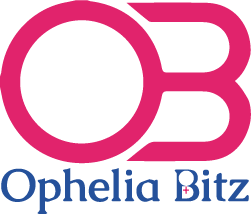 There comes a point in a woman’s life that she has to share her body with a tiny human inside of her. Pregnancy sounds really complicated but it is one of the greatest miracles in life. It can be simple, yet overwhelmingly complicated.
There comes a point in a woman’s life that she has to share her body with a tiny human inside of her. Pregnancy sounds really complicated but it is one of the greatest miracles in life. It can be simple, yet overwhelmingly complicated.
Being pregnant requires a certain amount of preparedness when it comes to taking care of your body. The kind of diet and nutrition has its own level of importance in you and your baby’s overall wellbeing too. After all, your baby absorbs everything you put in your body.
If you’re still wondering what kind of food you should be eating, here are some of the foods that are nutritious for you and your baby. It’s inexpensive and easy to find in your local supermarkets.
Berries
The right berries can be superfoods to some. For pregnant women, all kinds of berries will do. It is packed with nutrients and exciting flavors. Its potassium, fiber, vitamin C and folate content will be very nutritious for your baby. It also makes a good snack especially when you’re trying to maintain your weight all throughout the pregnancy.
Whole Grains
Whole grains are rich in fiber and folic acid – the much-needed folic acid is the most important thing you need to get when you’re on your first trimester. Though it is already sold as vitamins, getting folic acid in your diet is also a must. It prevents possible birth defects and complication during the first three months of your pregnancy. Incorporating whole grains is also good for your digestion, and in turn, good for nutrient absorption.
Beans
Beans are rich in zinc, calcium, iron, folate and fiber – these minerals are very important especially on the first trimester of your pregnancy. Aside from its nutrition and versatility in creating many different dishes, beans are relatively cheap on the price scale. As much as possible, try to buy the fresh or dried ones as they contain more nutrition.
If you can only get access to the canned beans, just make sure that you give it a good rinse before cooking them so as to wash the excess sodium it contains. Too much sodium is not good for pregnant women; and you will be hearing a lot of this lecture from your physician as you progress to your second and third trimester.
Eggs
Eggs are a staple in every American breakfast. They can be good for you, or bad for you, depending on where the eggs came from. They are packed with vitamins and nutrients that your body needs. It also gives you the protein and amino acids that your baby requires. The best part about this is eggs are also a very versatile. You can scramble, boil, poach, or cook them however you like.
One good tip to remember is to make sure you’re using farm grown, fresh, organic eggs. Most eggs sold today are cheaper and produced in a chicken factory wherein mother hens are injected with hormones to lay more eggs than they should. Yes, going organic is a little pricey, but getting nothing but the best for your child is a must.
Non-Fat Milk and Yogurt
Protein and calcium is very important especially on your second and third trimester. As your baby grows, it will demand more calcium, and when you have nothing more to give, your body will literally get the calcium from your teeth and bones to supply it to your unborn child – resulting in brittle bones and teeth, and we don’t want that.
Getting extra calcium not only protects your own health but adds the to the nutrition your growing baby needs. Non-fat milk is preferable as it contains less to no fat. It may not be as delicious as your whole milk, but drinking non-fat prevents you from gaining more weight that you should.

1 Comment
Hi, this is a comment.
To get started with moderating, editing, and deleting comments, please visit the Comments screen in the dashboard.
Commenter avatars come from Gravatar.